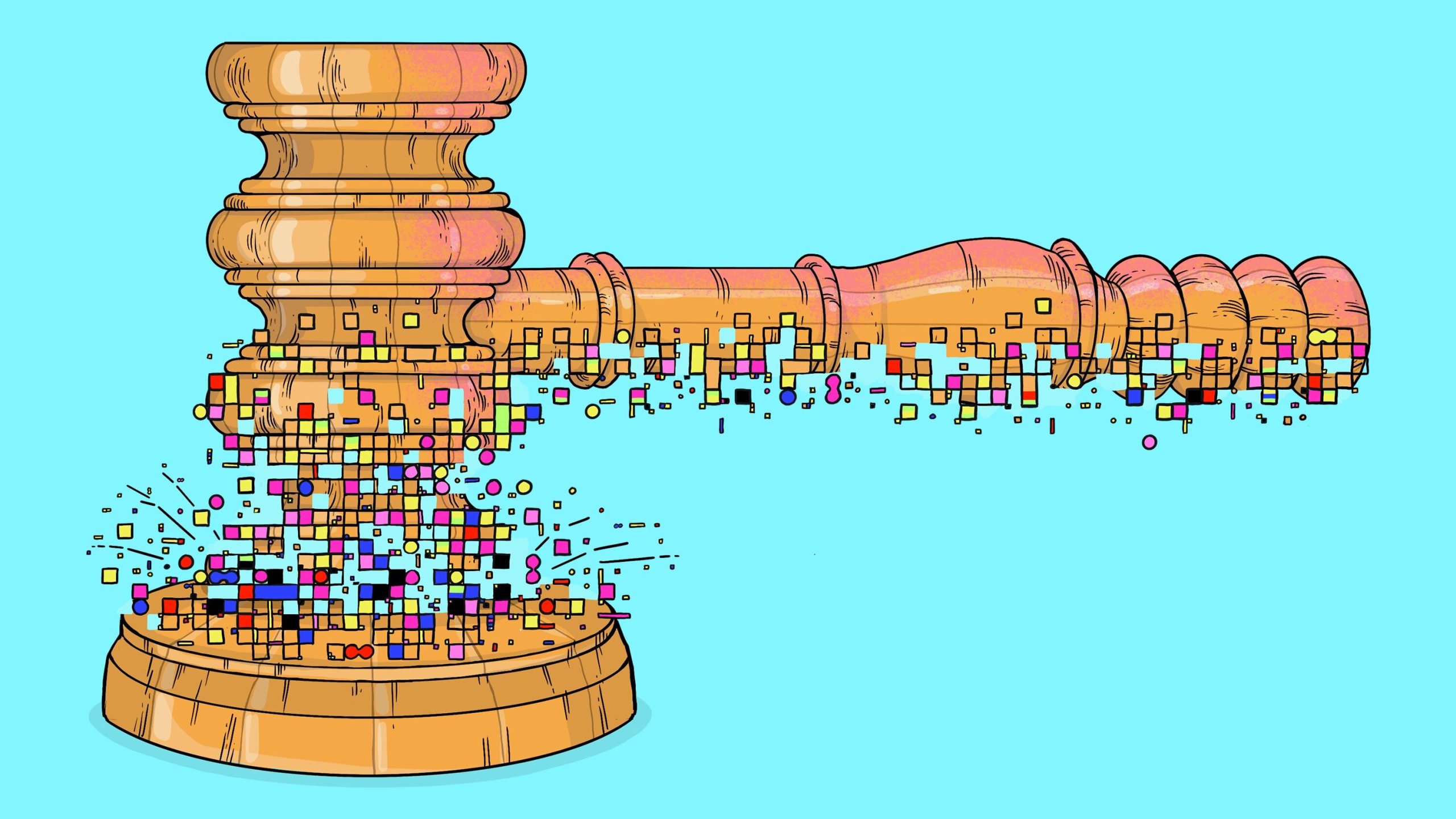
Introduction to AI in the Legal Industry
Welcome to the future of law! The legal industry, known for its meticulous research and painstaking drafting, is undergoing a transformative revolution with the advent of Artificial Intelligence (AI). Gone are the days of sifting through piles of documents or spending endless hours crafting complex arguments. AI is here to streamline processes, enhance efficiency, and empower legal professionals in ways we never thought possible.
In this blog post, we will explore how AI is reshaping the legal landscape beyond just research and drafting. From advanced analytics to natural language processing, AI technologies are revolutionizing every aspect of the legal profession. So buckle up as we dive into this exciting world where artificial intelligence meets jurisprudence! Let’s explore together how AI is paving new paths for lawyers and transforming the way they practice law.
Current Applications of AI in the Legal Field
Artificial Intelligence (AI) has made significant advancements in recent years, and its impact can be seen across various industries. The legal field is no exception, as AI technology is being increasingly integrated into legal processes to streamline operations and improve efficiency.
One of the key applications of AI in the legal industry is in document review. Traditionally, lawyers spent countless hours manually reviewing documents for relevant information. However, with the help of AI-powered algorithms, this process has become much faster and more accurate. Machine learning models can analyze vast amounts of data to identify patterns and extract pertinent information from documents.
Another area where AI is making a difference is in contract analysis. Contract management systems powered by natural language processing algorithms can automatically review contracts and flag potential risks or discrepancies. This not only saves time but also reduces the chances of human error.
AI technology is also being utilized for predictive analytics in litigation cases. By analyzing past case outcomes and relevant factors such as jurisdiction and judge history, AI systems can provide lawyers with insights on possible outcomes and assist them in developing winning strategies.
Chatbots equipped with Natural Language Processing capabilities are being employed by law firms to handle client inquiries efficiently. These bots can provide basic legal advice or direct clients to appropriate resources without requiring human intervention.
In addition to these specific applications, AI tools are helping automate administrative tasks such as scheduling appointments or managing billing processes, freeing up valuable time for lawyers to focus on complex legal matters.
The use of AI in the legal field undoubtedly brings numerous benefits – increased efficiency, improved accuracy, cost savings – but it also presents some challenges that need careful consideration. For instance, concerns about data privacy and security arise when sensitive client information gets processed through machine learning algorithms.
It’s clear that current applications of AI have already begun transforming how legal professionals approach their work. As technology continues to advance at an exponential pace, we can expect even more innovative uses of AI in the legal industry, leading to a more efficient.
How AI is Transforming Legal Research and Drafting
AI is revolutionizing the legal industry by transforming the way research and drafting are conducted. With advanced algorithms and machine learning capabilities, AI-powered tools can sift through vast amounts of data in a fraction of the time it would take a human researcher. This not only increases efficiency but also allows lawyers to access relevant information quickly.
In terms of legal research, AI helps analyze cases, statutes, regulations, and other legal documents to provide accurate and up-to-date information. By leveraging natural language processing (NLP), these tools can understand complex legal concepts and extract key insights from large volumes of text. This saves lawyers countless hours they would otherwise spend manually reviewing documents.
Furthermore, AI is streamlining the process of drafting legal documents. It can generate contracts based on predefined templates or customized parameters provided by lawyers. These tools ensure consistency in language usage and adherence to specific clauses or provisions required for different situations.
Additionally, AI has the potential to enhance accuracy in drafting by identifying potential errors or inconsistencies within documents. It can flag ambiguous language or conflicting clauses that may lead to disputes later on.
AI’s impact on legal research and drafting cannot be overstated. Its ability to handle vast amounts of data efficiently while providing accurate results is invaluable for law firms seeking to improve productivity and deliver better outcomes for their clients.
Benefits and Challenges of Implementing AI in the Legal Industry
AI technology has made significant advancements in recent years, revolutionizing various industries, including law. The legal field is no exception to this transformative wave. Implementing AI in the legal industry brings with it numerous benefits as well as some challenges.
One major benefit of using AI in the legal industry is its ability to enhance efficiency and accuracy. With AI-powered tools for tasks such as document review, contract analysis, and legal research, lawyers can save valuable time that would otherwise be spent on mundane tasks. This allows them to focus more on complex legal matters and provide better services to their clients.
Another advantage of implementing AI in law is its potential for cost reduction. By automating repetitive tasks through machine learning algorithms, firms can improve productivity while reducing overhead costs associated with manual labor.
AI technologies enable lawyers to access vast amounts of data quickly and efficiently. Through advanced data analytics techniques, these tools can identify patterns and trends that may not be easily evident to human researchers. This assists lawyers in making informed decisions based on comprehensive data analysis.
Along with these benefits come several challenges that need attention when implementing AI in the legal industry. One significant challenge is ensuring data privacy and security when dealing with sensitive client information stored or processed by AI systems.
Benefits include increased efficiency , reduced costs , improved decision-making through advanced analytics . However challenges such as privacy concerns , ethical considerations ,and implementation obstacles must be carefully addressed.

Ethical Concerns Surrounding AI in Law
As artificial intelligence (AI) continues to advance and play a larger role in the legal industry, it is essential to consider the ethical implications that come with its implementation. While AI offers numerous benefits such as improved efficiency and accuracy, there are valid concerns about its impact on privacy, fairness and accountability.
One of the main ethical concerns surrounding AI in law is the potential for bias. Machine learning algorithms rely on large datasets to make predictions or decisions. If these datasets contain biases or discriminatory patterns, AI systems can unintentionally perpetuate existing inequalities within society. This raises questions about fairness and equal treatment under the law.
Another concern is privacy. As AI tools become more sophisticated at analyzing vast amounts of data, there is an increased risk of violating individuals’ privacy rights. Legal professionals must carefully navigate issues related to data security and confidentiality when using AI-driven technologies.
There are concerns regarding transparency and accountability. The complexity of some AI algorithms makes it challenging for humans to understand how certain decisions are reached. Without clear explanations or justifications provided by these systems, it becomes difficult to hold them accountable for their actions.
The integration of artificial intelligence into the legal industry brings significant benefits but also poses important ethical challenges that must be addressed proactively. It requires careful thought from legal professionals and policymakers alike to ensure that fairness, accountability, privacy rights protection,and avoiding biases take center stage alongside technological advancements.
Future Possibilities for AI in the Legal Field
AI has already made significant advancements in the legal industry, revolutionizing tasks like research and drafting. But what lies ahead for this technology? The future holds exciting possibilities that could reshape the way lawyers work and enhance their ability to deliver efficient and accurate legal services.
One area where AI shows promise is predictive analytics. By analyzing vast amounts of data from past cases, AI algorithms can predict outcomes with a high degree of accuracy. This can help lawyers assess the viability of a case, make informed decisions about settlement negotiations, or even anticipate potential issues before they arise.
Another potential application is in contract management. With AI-powered contract analysis tools, lawyers can streamline the review process by automatically extracting relevant information from contracts and flagging any discrepancies or risks. This not only saves time but also reduces human error and ensures greater compliance with legal requirements.
AI also holds great potential in improving access to justice. As chatbots become more sophisticated, they can assist individuals with basic legal inquiries or guide them through simple procedures without requiring expensive lawyer fees. This technology has the power to bridge the gap between those who need legal assistance but cannot afford it and professional representation.
As natural language processing capabilities advance further, AI may become capable of understanding complex legal concepts and providing tailored advice based on specific circumstances. Imagine having an intelligent virtual assistant that can analyze your unique situation and provide personalized recommendations – this could greatly empower both individuals seeking guidance and professionals looking for additional insights.
The future of AI in law is still unfolding; however one thing remains clear: its impact will extend far beyond research and drafting alone! We are entering an era where machines collaborate alongside humans to deliver better outcomes for clients while reshaping traditional practices.
Conclusion
AI has already made significant strides in the legal industry, going beyond just research and drafting. From automating mundane tasks to assisting with contract analysis and predicting case outcomes, AI is transforming the way legal professionals work.
The current applications of AI in the legal field have proven to be highly effective in improving efficiency, accuracy, and cost-effectiveness. Legal research and drafting are being revolutionized by AI-powered tools that can quickly analyze vast amounts of information and generate accurate insights.
Implementing AI in the legal industry offers a multitude of benefits. It saves time for lawyers, allowing them to focus on more complex tasks that require human judgment. It also enhances productivity by streamlining processes and reducing errors. Additionally, utilizing AI technology can lead to substantial cost savings for law firms.
Despite these challenges, future possibilities for AI in the legal field are promising. As technology continues to advance rapidly, we can expect even more sophisticated tools that will further enhance efficiency and accuracy within the industry. For example, chatbots with natural language processing capabilities could provide clients with instant answers to their questions or help guide them through simple legal procedures without needing human intervention.
It is clear that AI has tremendous potential to reshape how law is practiced today. The integration of artificial intelligence into various aspects of the legal profession not only improves efficiency but also enables lawyers to deliver better results for their clients while focusing on higher-level strategic thinking tasks rather than repetitive administrative work.
